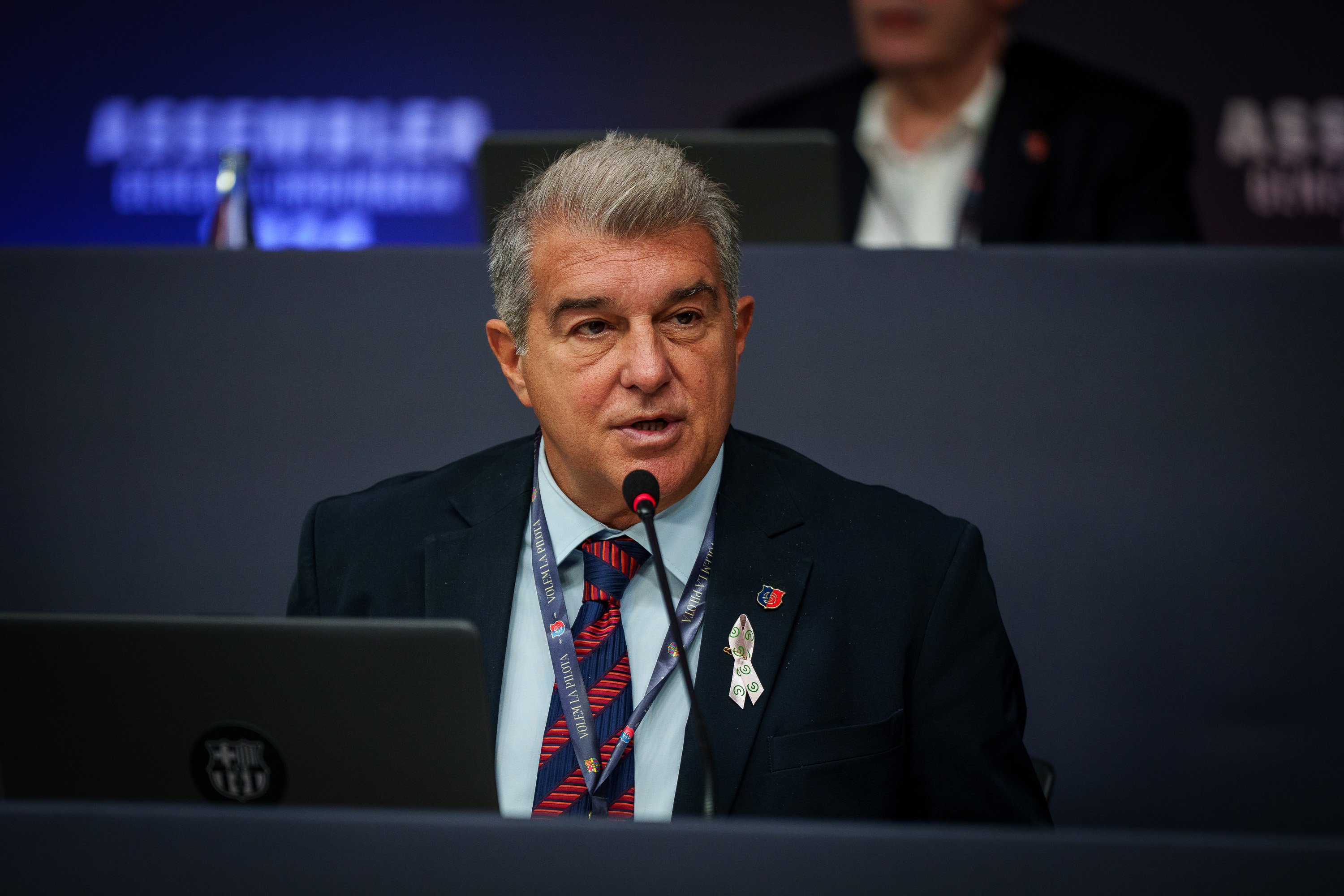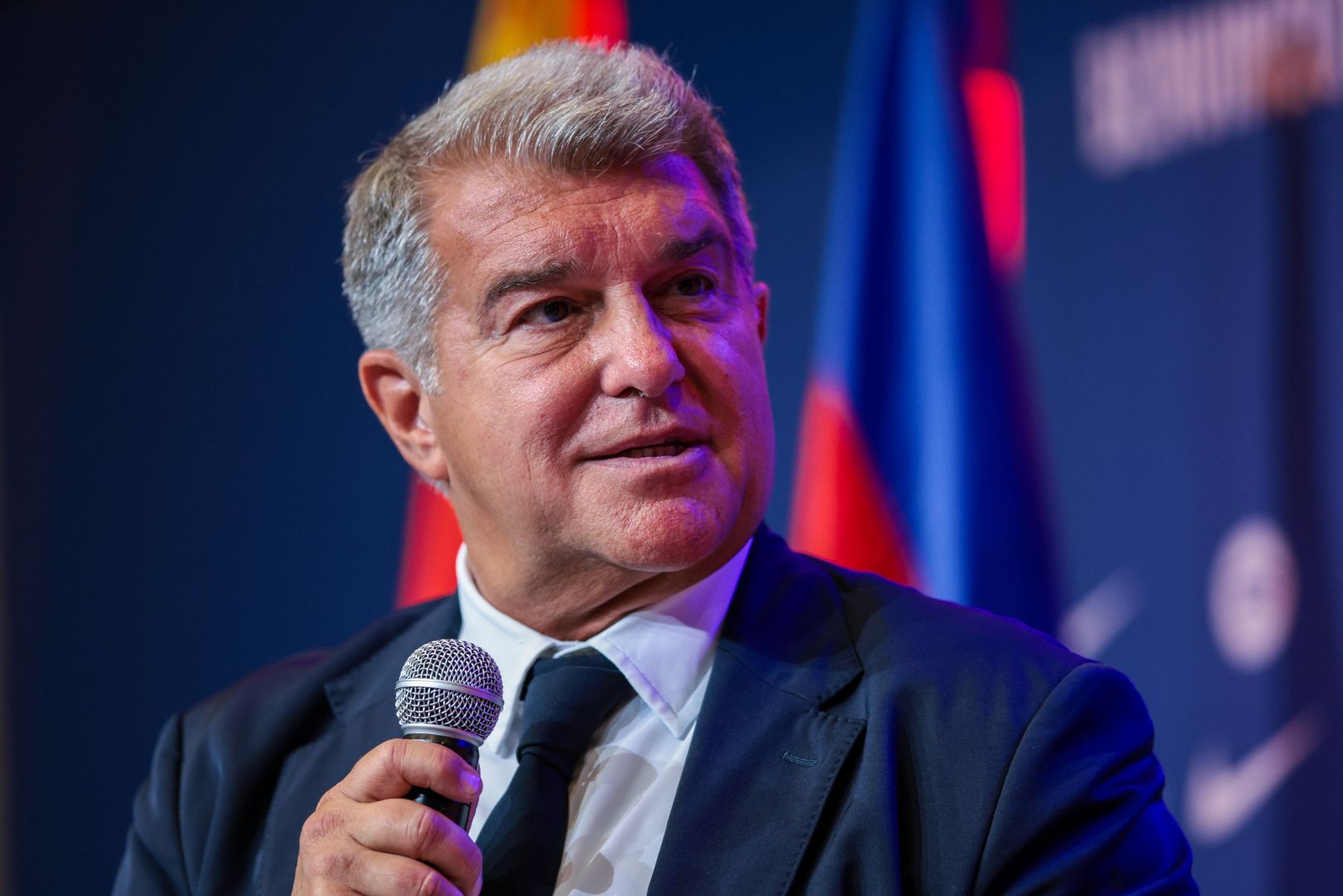Joan Laporta: The Visionary Leader Who Transformed FC Barcelona
Joan Laporta is a name that resonates deeply within the world of football, especially for the passionate fans of FC Barcelona. His tenure as the club president from 2003 to 2010 marked a golden era in Barca's history. During his leadership, the club not only achieved unprecedented success on the field but also revolutionized its business model, setting a benchmark for other football clubs globally. Laporta's visionary approach transformed Barca into a powerhouse, both financially and competitively.
Imagine this: you're leading a club with a rich history, a loyal fanbase, and sky-high expectations. That's exactly the challenge Joan Laporta took on when he became the president of FC Barcelona. His journey wasn't just about managing a football team; it was about redefining the club's identity and establishing it as a global brand. Laporta's influence extends beyond trophies; he reshaped the way football clubs operate in the modern era.
Throughout his career, Joan Laporta has been a polarizing figure. While some credit him with reviving Barca's fortunes, others criticize his management style. Regardless of the opinions, one thing is undeniable—his impact on the club is monumental. From signing legendary players to implementing innovative business strategies, Laporta's legacy continues to shape FC Barcelona even today.
- Tropicana Field Photos Your Ultimate Guide To Capturing The Magic
- Ariadna Gutieacuterrez The Queen Of Beauty And Beyond
Biography of Joan Laporta
Early Life and Education
Joan Laporta was born on October 18, 1962, in Barcelona, Spain. Growing up in a city where football is more than just a sport, Laporta developed a deep passion for the game from an early age. He attended the University of Barcelona, where he earned a degree in Law. This academic background played a crucial role in shaping his future career, equipping him with the skills needed to navigate complex legal and business matters.
Before entering the world of football, Laporta worked as a lawyer specializing in sports law. This experience provided him with valuable insights into the legal intricacies of sports management, which later proved instrumental in his role as the president of FC Barcelona.
Professional Career
Laporta's professional journey began in the legal field, where he quickly gained recognition for his expertise in sports law. His work in this area brought him into close contact with various sports organizations, laying the groundwork for his eventual transition into sports management. In 2003, Laporta made a bold move by running for the presidency of FC Barcelona, a decision that would alter the course of his life and the club's history.
- Lelia Parma A Rising Star In The Spotlight
- Amy Van Nostrand The Remarkable Journey Of An Inspiring Figure
Upon being elected as the president of FC Barcelona, Laporta set out to implement a series of ambitious reforms. His leadership style was characterized by a commitment to transparency, innovation, and a focus on long-term sustainability. Under his guidance, Barca not only achieved remarkable success on the field but also established itself as a leading brand in the global sports market.
Data and Biodata of Joan Laporta
| Full Name | Joan Laporta i Estruch |
|---|---|
| Date of Birth | October 18, 1962 |
| Place of Birth | Barcelona, Spain |
| Profession | Lawyer, Sports Manager |
| Years as FC Barcelona President | 2003 - 2010 |
| Notable Achievements | Revitalized FC Barcelona, introduced modern business strategies, and secured multiple league titles |
Joan Laporta's Leadership Style
Key Characteristics
Laporta's leadership style can be described as visionary, strategic, and inclusive. He believed in fostering a collaborative environment where diverse voices could contribute to the club's success. One of his key strategies was to prioritize long-term growth over short-term gains, a philosophy that paid dividends in the form of sustained success both on and off the field.
Another defining feature of Laporta's leadership was his emphasis on financial sustainability. He recognized the importance of balancing the club's books while investing in top talent. This approach not only ensured Barca's competitiveness but also safeguarded its financial future.
Innovative Business Strategies
Under Laporta's leadership, FC Barcelona adopted several innovative business strategies that set it apart from its competitors. One of his most notable initiatives was the "More Than a Club" campaign, which emphasized the club's social and cultural significance beyond football. This campaign helped Barca connect with fans on a deeper level, enhancing its brand value globally.
Laporta also focused on expanding the club's digital presence, recognizing the potential of online platforms to reach a broader audience. By leveraging social media and other digital tools, Barca was able to engage with fans worldwide, creating a truly global fanbase.
Joan Laporta's Impact on FC Barcelona
Revolutionizing the Club's Identity
One of the most significant impacts of Joan Laporta's presidency was the transformation of FC Barcelona's identity. Under his leadership, the club embraced a philosophy that went beyond winning trophies. Laporta instilled a sense of purpose and pride in the club, emphasizing its role as a cultural and social institution.
This shift in identity was reflected in various aspects of the club's operations, from its recruitment strategy to its community outreach programs. Laporta's vision was to create a club that represented the values of its supporters and contributed positively to society.
Securing Legendary Talent
A hallmark of Laporta's tenure was his ability to attract and retain world-class talent. During his time as president, Barca signed some of the greatest players in football history, including Ronaldinho, Samuel Eto'o, and Lionel Messi. These signings not only strengthened the team but also elevated the club's status on the global stage.
Laporta's focus on developing young talent through the club's renowned La Masia academy also paid dividends. Players like Xavi, Iniesta, and Puyol became integral parts of the team, embodying the club's philosophy and values.
Challenges Faced by Joan Laporta
Financial Difficulties
When Joan Laporta took over as president in 2003, FC Barcelona was facing significant financial challenges. The club was burdened with debt, and its financial stability was in question. Laporta's first priority was to address these issues and put the club on a solid financial footing.
Through a combination of cost-cutting measures, innovative revenue streams, and strategic investments, Laporta was able to turn the club's financial situation around. His ability to navigate these challenges while maintaining the club's competitive edge was a testament to his leadership skills.
Political Controversies
Throughout his presidency, Laporta faced numerous political controversies, both within and outside the club. His outspoken views on various issues often drew criticism from certain quarters, but he remained steadfast in his commitment to his principles.
Despite these challenges, Laporta's focus on the club's long-term success never wavered. He believed that addressing these controversies head-on was essential for maintaining the club's integrity and credibility.
Legacy of Joan Laporta
Transforming FC Barcelona
Joan Laporta's legacy at FC Barcelona is one of transformation and success. Under his leadership, the club achieved unprecedented heights, both on and off the field. His vision and leadership not only revitalized Barca but also set a new standard for football clubs globally.
Laporta's impact extends beyond his tenure as president. The strategies and philosophies he implemented continue to influence the club's operations today, ensuring its continued success and relevance in the ever-evolving world of football.
Inspiring Future Leaders
Joan Laporta's leadership serves as an inspiration for future leaders in the world of sports and beyond. His ability to navigate complex challenges, implement innovative strategies, and maintain a clear vision for the future is a testament to his capabilities as a leader.
For aspiring leaders, Laporta's story offers valuable lessons in leadership, innovation, and perseverance. His journey from a lawyer to the president of one of the world's most prestigious football clubs demonstrates the power of vision and determination.
Conclusion
In conclusion, Joan Laporta's presidency at FC Barcelona was a defining period in the club's history. His visionary leadership, innovative strategies, and commitment to long-term success transformed Barca into a global powerhouse. From securing legendary talent to implementing groundbreaking business practices, Laporta's impact on the club is undeniable.
We invite you to join the conversation by sharing your thoughts and insights in the comments section below. Your input is valuable, and together we can continue to explore the fascinating world of football leadership. Don't forget to check out our other articles for more in-depth analysis and insights into the world of sports.
Table of Contents
- Biography of Joan Laporta
- Early Life and Education
- Professional Career
- Data and Biodata of Joan Laporta
- Joan Laporta's Leadership Style
- Key Characteristics
- Innovative Business Strategies
- Joan Laporta's Impact on FC Barcelona
- Revolutionizing the Club's Identity
- Securing Legendary Talent
- Challenges Faced by Joan Laporta
- Financial Difficulties
- Political Controversies
- Legacy of Joan Laporta
- Transforming FC Barcelona
- Inspiring Future Leaders
Article Recommendations
- Melissa Sagemiller The Rising Star In Hollywoodrsquos Sky
- Discover The Enchantment Magic Kingdom Photos That Bring Disney Dreams To Life



Detail Author:
- Name : Forest Pollich
- Username : federico61
- Email : haag.kaleigh@boyle.net
- Birthdate : 1994-11-07
- Address : 21008 Hartmann Greens Suite 427 Hudsonmouth, MO 81285-7134
- Phone : (505) 822-0240
- Company : Bergstrom-Little
- Job : Preschool Teacher
- Bio : Eum aut et sunt omnis saepe nesciunt. Minima et ipsum consectetur debitis ipsum. Voluptatem laborum non labore voluptatum vel. Quibusdam quisquam est molestiae neque.
Socials
facebook:
- url : https://facebook.com/wisozkg
- username : wisozkg
- bio : Aut beatae dolore autem ab nulla. Aspernatur quae voluptatum rerum possimus.
- followers : 5053
- following : 440
instagram:
- url : https://instagram.com/gaetano_id
- username : gaetano_id
- bio : Et aut ea aut ex tempore iusto vitae. Et et debitis veritatis. Eum exercitationem qui a non.
- followers : 3559
- following : 613
linkedin:
- url : https://linkedin.com/in/gaetano7200
- username : gaetano7200
- bio : Non voluptatem nostrum et libero perferendis.
- followers : 4638
- following : 888